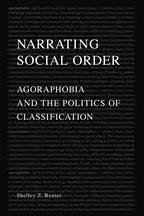
Birth Order
Versandkostenfrei!
Versandfertig in 6-10 Tagen
23,99 €
inkl. MwSt.

PAYBACK Punkte
12 °P sammeln!
Please note that the content of this book primarily consists of articles available from Wikipedia or other free sources online. Birth order is defined as a person''s rank by age among his or her siblings. Birth order is often believed to have a profound and lasting effect on psychological development. This assertion has been repeatedly challenged by researchers, yet birth order continues to have a strong presence in pop psychology and popular culture. Alfred Adler (1870-1937), an Austrian psychiatrist, and a contemporary of Sigmund Freud and Carl Jung, was one of the first theorists to suggest...
Please note that the content of this book primarily consists of articles available from Wikipedia or other free sources online. Birth order is defined as a person''s rank by age among his or her siblings. Birth order is often believed to have a profound and lasting effect on psychological development. This assertion has been repeatedly challenged by researchers, yet birth order continues to have a strong presence in pop psychology and popular culture. Alfred Adler (1870-1937), an Austrian psychiatrist, and a contemporary of Sigmund Freud and Carl Jung, was one of the first theorists to suggest that birth order influences personality. He argued that birth order can leave an indelible impression on an individual''s style of life, which is one''s habitual way of dealing with the tasks of friendship, love, and work. According to Adler, firstborns are "dethroned" when a second child comes along, and this may have a lasting influence on them. Younger and only children may be pampered and spoiled, which can also affect their later personalities. Additional birth order factors that should be considered are the spacing in years between siblings, the total number of children, and the changing circumstances of the parents over time.












